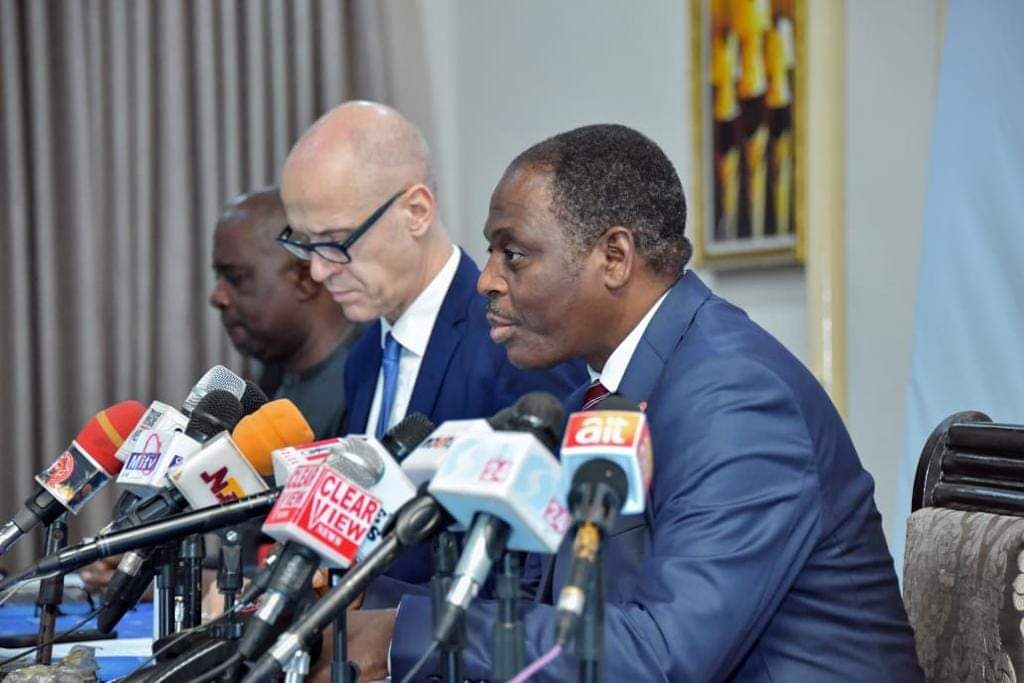PAG Felicitates Muslims on Commencement of Ramadan Fast
February 18, 2026TOP TEN MUSLIM UNIVERSITIES IN AFRICA
February 14, 2026ANALYSIS: Why Nigeria GDP is not the best in Africa Despite having the largest market
February 10, 20262023 World Drug Day: NDLEA highlights achievements in 29 months
2023 World Drug Day: NDLEA highlights achievements in 29 months

Brig. Gen. Mohamed Buba Marwa, Chairman and Chief Executive Officer of the National Drug Law Enforcement Agency (NDLEA), revealed substantial progress in the battle against substance abuse and illicit drug trafficking over the past 29 months.
Speaking at a joint press briefing in Abuja on June 19, 2023, alongside Mr. Oliver Stolpe, the Country Representative of the United Nations Office on Drugs and Crime (UNODC), Marwa discussed the agency’s accomplishments.
The press conference marked the commencement of a weeklong series of events commemorating the 2023 World Drug Day—an annual occasion designed to rally resources, align policies, and inspire organizations, communities, and nations to effectively address the challenges posed by illicit substances in society.
During this period, the NDLEA arrested a total of 31,675 individuals involved in drug offenses. Out of this number, 5,147 were prosecuted and convicted, while over 6.3 million kilograms of assorted drugs were seized. These results signify a concerted effort to combat the drug menace.
Marwa emphasized the significance of this year’s theme, “People First: Stop Stigma and Discrimination, Strengthen Prevention,” which aligns with Nigeria’s current situation. He highlighted the agency’s intensified law enforcement operations to curb drug supply, resulting in the apprehension of 31,675 drug offenders, including 35 major suppliers.
Additionally, 5,147 individuals have been successfully prosecuted and convicted, with over 11,000 cases pending in court. Notably, 23,725 drug users received counseling and rehabilitation, primarily through brief interventions.
The NDLEA’s determined actions have led to the recovery of approximately 6.3 million kilograms of illicit substances, the destruction of 852.142 hectares of cannabis farms, and the dismantling of three clandestine methamphetamine laboratories. Marwa assured the audience that NDLEA agents remain engaged in interdiction activities.
However, Marwa underscored the importance of addressing drug demand reduction, which encompasses prevention, treatment, and rehabilitation. Balancing these crucial components is essential to achieving a drug-free society.
The NDLEA has made significant investments in prevention, treatment, and rehabilitation over the past two years. Rehabilitation facilities remain accessible, with additional centers acquired through donations and federal government approval granted for the construction of regional model rehabilitation facilities.
Collaboration with private treatment centers has also increased, while the establishment of a toll-free, round-the-clock call center offering teletherapy demonstrates the agency’s commitment to comprehensive support.
To advance prevention efforts, the NDLEA’s WADA advocacy initiative has gained momentum, with commands, formations, and partnering civil society organizations conducting sensitization lectures and campaigns in schools, communities, and places of worship throughout the country.
Furthermore, the agency has produced TV commercials and radio jingles in multiple languages, broadcast on various platforms.
Marwa urged society to abandon stigmatization, as it hinders drug-dependent individuals from seeking treatment and negatively affects their families and socio-economic well-being.
Overcoming bias against drug-dependent individuals is vital for supporting their recovery, ensuring effective utilization of government, institutional, and corporate resources devoted to combatting the drug problem.
Marwa expressed gratitude for the partnership between the NDLEA, NGOs, development partners, and various groups, institutions, and professionals, including media professionals, who have provided invaluable support to the renewed war on drugs.
He specifically acknowledged the United Nations Office on Drugs and Crime (UNODC), the European Union (EU), and the governments of the United States, United Kingdom, France, India, and Germany for their contributions








